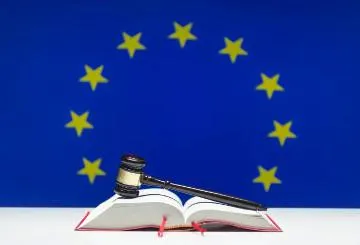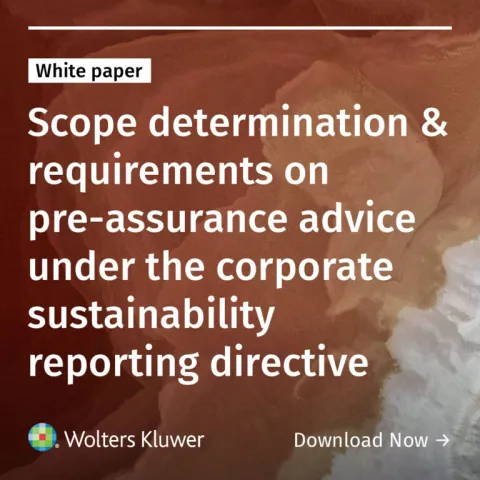‘EPC, EPO and UPCA lack guarantees for democracy, rule of law and human rights’
October 26, 2017
European states lack awareness of their obligations under the European Convention on Human Rights (ECHR) and the EU Charter of Fundamental Rights and have established associations such as the EPO and the UPC, without anyone accounting for guarantees with regard to democracy, the rule of law and human rights. Professor Siegfried Broß said this in an interview with Kluwer IP Law about the constitutional complaint that has been filed against German ratification of the Unified Patent Court Agreement. Broß is a former judge of the Xth Civil Panel of the Federal Court of Justice (1986-1998), responsible among others for patent cases, and of the German Federal Constitutional Court (FCC, 1998-2010).
One of the complaints against the UPCA concerns ‘democratic deficits and deficits in rule of law with regard to the regulatory powers of the organs of the UPC’. Observers think this refers, among others, to alleged deficiencies of the EPO structure and the European Patent Convention, on which the EPO is based.
If the Federal Constitutional Court were to rule that the EPC framework – that has functioned for 44 years - does not sufficiently respect the separation of powers and does not sufficiently observe democratic rules and responsibilities, what would the consequences be? Would it mean that all the EPO’s decisions turn out not to be valid?
(Answers translated to English by Kluwer IP Law. The original answers in German of Professor Broß can be found at the bottom of this article.)
1) ‘The questions raised by the constitutional complaint on democratic and legal deficits of the European Patent Convention and the European Patent Organisation which is based on it, as well as the subsequent Unified Patent Court, can only be understood and answered in an appropriate manner, if one looks more closely at the structure of the European Patent Organisation and its executive body, the European Patent Office, in an unbiased and distant way.
When the Member States of the EPC entered into an association, they completely disregarded the obligations imposed on them for many years by national constitutional law, by the European Convention on Human Rights (ECHR) – for all member states – as well as, for all EU member states, by the EU Charter of Fundamental Rights.

As to human rights, there are two levels: it concerns the individual rights of those who are affected in the outside world, and it concerns, internally, the individual rights of the staff of the new association of states. To this day, the necessary problem awareness is missing both in the national constitutional bodies of the EPO member states and in the European Court of Human Rights.
In the past I have pointed out that the current situation at the EPO shows the Administrative Council fails in its task and that with its current attitude towards the EPO staff a “Guantánamo” would be possible on the soil of the Federal Republic of Germany. This has been clearly illustrated by the presentation of the current Chairman of the Administrative Council on 13 October 2017 in Munich.
He said more or less that the troubles of the last years within the EPO, with very depressing human tragedies, will (probably) not be seen anymore under the new presidency. There is no more revealing way of describing the failure of democratic structures and the rule of law, which are accompanied by an uncontrolled opening to the contempt of human rights of the staff of the institution - and the failure of the supervisory body.
It is therefore not correct to assess the EPC's rules and the organizational structure of the EPO as satisfactory and perhaps even exemplary for 44 years. The EPO staff had no effective protection of its fundamental rights due to the referral to the jurisdiction of the ILO, and the deciding bodies of the EPO could seriously never have been designated as independent courts. From the outset, it was opposed by the organizational structure chosen by the contracting states, which structure was tantamount to an escape from basic principles of democracy and rule of law.
However - one must not overlook this - all concerned and involved parties, and particularly the constitutional organs of the Member States, have lacked the necessary awareness of this problem. In the past and to the present, they have not lived up to their obligations under the ECHR, the EU Charter of Fundamental Rights and their national constitutional obligations.
Should the Federal Constitutional Court – which I expect after the Court’s decision of 27 April 2010 [note by the editor: in this decision 2 BvR 1848/07 it was held that decisions by the EPO are supranational legal acts against which a constitutional complaint can be filed in principle; however, the constitutional complaint at stake was rejected because it did then not satisfy the FCC’s high requirements as to the substantiation of such complaints] – decide that the pending constitutional complaints [ed. see this blogpost] and the new constitutional complaint [of Ingve Björn Stjerna, ed.] are justified, owing to their careful substantiations, this would not mean that earlier decisions of the Boards of Appeal and the Enlarged Board of Appeal of the EPO were invalid. As in other states, under German law a re-opening of a proceeding that has been finally concluded is only possible in the case of a criminal conviction.’
If (some of the) the complaints are justified, according to the FCC, would it give directions how to repair the deficiencies?
2) ‘If the Federal Constitutional Court rules a complaint is justified, it must of course indicate how the contested legal foundations, including the EPC, should be amended. This is commanded by legal certainty, so as to establish justice and security at the European and international level as soon as possible.
The UPCA does not create any difficulties because it has not yet been ratified, so that the status quo is maintained for the time being. Because of the considerable deficits of the EPC regarding the rule of law and democratic and human rights, the Federal Republic of Germany, as an EPC Contracting State, is to be obliged to act towards an amendment of the EPC, such that the Boards of Appeal [ed.: literally ‘the deciding bodies’, but we assume that Prof. Broß did not mean to include the opposition divisions] should be taken out of the organization of the EPO and become institutionally independent. For the expert such a new structure is not even difficult to create.’
Do you think the constitutional complaint against the UPCA is a blessing, in the sense that it has prevented the UP system from starting as long as fundamental constitutional issues have not been ruled upon by independent judges?

Have you ever been in contact with Mr. Ingve Björn Stjerna about his complaint?
4) ‘No.’
If the FCC rules that there are fundamental deficiencies in the UP system indeed, this would be a gigantic blow to efforts to build a new European patent system. From your experience as a former FCC judge, can you tell whether judges are aware of the political and financial consequences of their decisions?
5) ‘It is necessary to distinguish here. No concessions are possible to the principles of the rule of law or democracy or human rights because of financial considerations. I was a rapporteur, for instance, in the dispute over the distribution of DM 100 billion of the UMTS auction, but also in the dispute about the Atomkonsens [ed.: the agreement between the government and the electric power companies of 2000 where the first red-green government initiated the exit from the use of atomic energy in Germany; the dispute was about the costs] case. If there are any existential disadvantageous consequences for the state, the Federal Constitutional Court has to mitigate these by setting deadlines or expiry dates. Such problems do not occur in the EPO case. Serious violations of fundamental and human rights must be immediately stopped and past violations must – as much as possible – be compensated for appropriately.’
The Unified Patent Court is unique in that it is very specialized. Some say: too specialized, because specialized courts will always tend to broaden their field of competence and the UPC will tend to make patents too important; to the detriment of for instance, the need for broad accessibility of medicines. What is your opinion?
6) ‘Specialization can - as the EPO undoubtedly proves – put at risk human rights and fundamental democratic principles. The problem is that parallel worlds are created and thus, through associations between states, first the principle of democracy starts eroding and subsequently human rights and the rule of law.
In my long-standing practice as a judge of the patent panel of the Federal Court of Justice and before that in the Bavarian Administrative Court’s panel for the planning of all Bavarian road and water projects, the system of seeking assistance from experts that are outstandingly qualified in their field has proven to be unsurpassed from the point of view of the rule of law.
In this system, the judicial training and experience is put to use in an objective and distanced manner by the judge examining the plausibility and conclusiveness as well as the clarity of an expert opinion in his/her own responsibility. In this process, the questions, suggestions and opposite positions of the parties in the proceedings are helpful. Conversely, expert judges are not a priori free from inner biases and it is questionable whether they are still up to date with the developments in their field of expertise.’
Is there anything else you’d like to mention?
7) ‘The constitutional complaint that you addressed and the entire problem behind it have only been able to develop because EPC Member States have largely failed to act in the Administrative Council and since – with the approval of the "mainstream" - a parallel world has developed in international law; despite all the criticism in the past, numerous publications and, since several years, serious clashes between the EPO's presidency and staff members.
The rule of law, democracy and human rights have been put at risk. I would like to stress the point that the problem can be compared with the fact that globally operating companies do not feel responsible for the respect of human rights in countries where they have their production. Against this background, the basis for the UPCA is lacking, because the EPC collapses in both areas - towards its staff and regarding its organization of judicial review.’
For regular updates on the Unitary Patent and the Unified Patent Court, subscribe to this blog and the free Kluwer IP Law Newsletter.
--
Original answers in German from Professor Broß:
1) Die durch die Verfassungsbeschwerde aufgeworfenen Fragen von demokratischen und rechtsstaatlichen Defiziten des EPÜ und der auf ihm beruhenden EPO sowie des sich hieran anschließenden EPC kann man nur verstehen und dann auch sachgerecht beantworten, wenn man sich unvoreingenommen und distanziert die Struktur der EPO und ihres Exekutivorgans, des EPA genauer ansieht.
Die Vertragsstaaten des EPÜ sind eine Staatenverbindung eingegangen und haben dabei völlig außer Acht gelassen, welchen Bindungen sie bei einem solchen Vorhaben nach innerstaatlichem Verfassungsrecht und – für alle Vertragsstaaten nach der EMRK – und für die Vertragsstaaten der Europäischen Union seit vielen Jahren der Grundrechtecharta unterliegen.
Staatenverbindungen wurden in der Vergangenheit regelmäßig – z.B. EuroControl, aber auch ILO – nach einem oberflächlichen Gestaltungsmuster eingegangen: Der zu Grunde liegende politische Willen wurde umgesetzt, ohne sich Rechenschaft darüber ab zu legen, welche Strukturen in der neuen Staatenverbindung hinsichtlich Demokratie, Rechtsstaatsprinzip und Menschenrechte gewährleistet sein müssen.
Was die Menschenrechte anbetrifft, bestehen zwei Ebenen: Einmal handelt es sich um die Individualrechtsposition der nach außen Betroffenen und im inneren der Bediensteten der neuen Staatenverbindung. Bis heute fehlt es hier bei den nationalen Verfassungsorganen der Mitgliedstaaten der EPO wie auch beim EGMR an dem gebotenen Problembewusstsein.
Ich habe in der Vergangenheit darauf hingewiesen, dass die aktuellen Vorgänge beim EPA ein Versagen des Verwaltungsrats erkennen lassen und dass bei der eingenommenen Haltung gegenüber den Bediensteten des EPA auf dem Boden der Bundesrepublik Deutschland "Guantanamo" möglich wäre. Das hat eindrücklich der Vortrag des nunmehrigen Vorsitzenden des Verwaltungsrats am 13. Oktober 2017 in München verdeutlicht.
Er hat sinngemäß ausgeführt, dass die Verwerfungen der letzten Jahre innerhalb des EPA mit äußerst bedrückenden menschlichen Schicksalen mit der neuen Präsidentschaft (vermutlich) nicht mehr auftreten werden. Entlarvender kann man die Verfehlung rechtsstaatlich-demokratischer Strukturen mit einer unkontrollierten Öffnung für die Missachtung von Menschenrechten der Bediensteten der Institution und das Versagen des Aufsichtsorgans nicht umschreiben.
Es ist deshalb auch nicht richtig, dass Regelwerk des EPÜ und die Organisationsstruktur der EPO als zufrieden stellend und vielleicht gar vorbildlich während 44 Jahren zu beurteilen. Die Bediensteten des EPA hatten keinen effektiven Grundrechtsschutz wegen des Verweises auf die Gerichtsbarkeit der ILO und die Spruchkörper konnten noch nie ernsthaft als unabhängige Gerichte bezeichnet werden. Dem stand von vornherein die von den Vertragsstaaten gewählte Organisationsstruktur mit der Flucht aus grundlegenden rechtsstaatlich-demokratischen Bindungen entgegen.
Allerdings – das darf man nicht übersehen – hat bei allen Betroffenen und Beteiligten und vor allem den Verfassungsorganen der Mitgliedstaaten das gebotene Problembewusstsein gefehlt. Sie sind in der Vergangenheit und bis in die Gegenwart ihren Verpflichtungen aus EMRK, Grundrechtecharta der EU und ihren nationalen Verfassungsbindungen nicht gerecht geworden.
Sollte das Bundesverfassungsgericht – was ich nach dem Kammerbeschluss vom 27. April 2010 erwarte – aufgrund der sorgfältigen Begründungen schon anhängiger Verfassungsbeschwerden und der nunmehrigen Verfassungsbeschwerde entsprechend urteilen, hätte dies nicht zur Folge, dass alle in der Vergangenheit getroffenen Entscheidungen der Beschwerdekammern und der Großen Beschwerdekammer des EPA hinfällig wären. Auch das deutsche Recht kennt die Wiederaufnahme rechtskräftig abgeschlossener Verfahren nur bei strafrechtlichen Verurteilungen.
2) Selbstverständlich muss das Bundesverfassungsgericht im Falle der Stattgabe Hinweise dafür geben, wie die beanstandeten gesetzlichen Grundlagen einschließlich des EPÜ zu fassen sind. Das gebietet die Rechtssicherheit, damit ehestmöglich auch Rechtsfrieden und Sicherheit auf europäischer und Völkerrechtsebene hergestellt wird.
Das EPGÜ bereitet keine Schwierigkeiten, weil es dann zunächst beim bisherigen Vertragsstand verbleibt. Wegen der erheblichen rechtsstaatlich-demokratischen und menschenrechtlichen Defizite des EPÜ ist die Bundesrepublik Deutschland als Vertragsstaat zu verpflichten, auf eine entsprechende Änderung des EPÜ hinzuwirken, dergestalt, dass die Spruchkörper aus der Organisation des EPA herausgenommen und institutionell verselbstständigt werden. Dem Fachmann bereitet eine solche neue Regelung nicht einmal geringe Schwierigkeiten.
3) Die durch die Verfassungsbeschwerde in das Licht nicht nur der Öffentlichkeit – dort ist es letztlich schon seit Anbeginn wie die deutsche Delegation seinerzeit bei den Vertragsverhandlungen vor dem Hintergrund der Gründung des Bundespatentgerichts eindringlich angemahnt hatte –, sondern auch der Regierungen und Verfassungsgerichte der Mitgliedstaaten gerückte Problematik war immer latent. Aus Bequemlichkeit und Schaffung einer Parallelwelt – wie wir es seit Jahrzehnten im Völkerrechtsbereich mit großer Sorge beobachten müssen – kam es nie zum "Schwur". Wegen der bedrückenden internen Vorgänge beim EPA ohne effektiven Rechtsschutz für die Bediensteten und Schutz von deren auch im internen Dienstbetrieb geltenden privaten Sphäre ist ein weiteres Ausweichen ausgeschlossen und eine klarstellende Entscheidung im Rahmen des nationalen Verfassungsrechts, der EMRK und der Grundrechtecharta unumgänglich.
4) Nein.
5) Man muss hier unterscheiden: Rechtsstaats- und Demokratieprinzip dulden ebenso wenig wie die Menschenrechte Abstriche unter finanziellen Erwägungen. Ich war Berichterstatter etwa wegen des Streits um die Verteilung der Versteigerungserlöse von etwa 100 Milliarden DM der UMTS, aber auch wegen des Atomkonsenses. Etwaige für das Staatswesen existenzielle nachteilige Folgen sind über die Festsetzung von Stichtagen oder Auslauffristen schonend vom Bundesverfassungsgericht zu gestalten. Solche Probleme treten hier nicht auf und schwerwiegende Grundrechtseingriffe wie auch substantielle Menschenrechtsverletzungen müssen sofort unterbunden und für die Vergangenheit durch entsprechende Wiedergutmachung – sofern möglich – ausgeglichen werden.
6) Spezialistentum kann – wie gerade die EPO zweifelsfrei nachweist – Menschenrechte und rechtsstaatlich-demokratischen Grundlagen infrage stellen. Es ist das Problem, dass hierdurch Parallel- welten geschaffen und so über Staatenverbindungen das Demokratieprinzip zuerst und danach die Menschenrechte und der Rechtsstaat ausgehöhlt und unterlaufen werden.
In meiner langjährigen Praxis als Richter im Patentsenat des Bundesgerichtshofs und vorhergehend am Bayerischen Verwaltungsgerichtshof in dem für ganz Bayern zuständigen Planungssenat für alle Straßen- und Wasservorhaben hat sich das System der Beiziehung von in ihrem Fachgebiet herausragend qualifizierten Sachverständigen unter rechtsstaatlichen Gesichtspunkten als unübertroffen bewährt.
Die richterliche Ausbildung und Erfahrung kommt hier objektiv und distanziert dergestalt zum Tragen, dass die Plausibilität und Schlüssigkeit wie auch Klarheit eines Gutachtens vom Richter verantwortlich geprüft wird. Hierbei sind die Fragen, Anregungen und Gegenvorstellungen der Prozessparteien hilfreich. Demgegenüber sind fachlich vorgebildete Richter nicht von vornherein von innerer Befangenheit frei und es ist fraglich, ob sie in ihrem Fachgebiet noch den vollen Überblick über den aktuellen Stand haben.
7) Die von Ihnen angesprochene Verfassungsbeschwerde und die gesamte Hintergrundproblematik konnte sich nur entwickeln, weil trotz in der Vergangenheit liegender zahlreicher Kritiken, Veröffentlichungen und seit einigen Jahren schwerer Auseinandersetzungen zwischen Amtsleitung und Bediensteten des EPA, die Mitgliedstaaten des EPÜ über den Verwaltungsrat großenteils versagt haben und – gebilligt vom "mainstream" – sich eine Parallelwelt im Völkerrecht entwickelt hat.
Rechtsstaat, Demokratie und Menschenrechte werden hierdurch in der Substanz gefährdet. Ich weise nachdrücklich darauf hin, dass die Problematik der vergleichbar ist, dass sich weltweit agierende Unternehmen in Staaten, in denen sie produzieren lassen, nicht für die Beachtung der Menschenrechte verantwortlich fühlen. Vor diesem Hintergrund fehlt dem EPGÜ das Substrat, weil das EPÜ in beiden Bereichen – Stellung der Bediensteten und Organisation der Spruchtätigkeit – in sich zusammenfällt.
You may also like














Peter Parker
What I would like to mention is that we should not forget that everyone at the EPO makes a ton of money without paying taxes. As a German citizen I do not feel responsible for their rights as staff. We are also not talking about the weakest of society here. So we should not blow the staff issues out of proportion.
Maxdrei
Peter Parker the Practioner chips in again, complaining that we should not concern ourselves with the human rights of the employees of the European (repeat, European) Patent Office. Blowing it all out of proportion, he cautions us all. They can take care of themselves, he advises. They each make "a ton of money" he asserts, and then pay no tax on their gargantuan bank balances. He styles himself a citizen of Germany. Curious. You would think by now he would have some passing acquaintance with the (admirable) human rights provisions of its Basic Law. You know, the ones not limited to those who carry a German Passport. Or perhaps he disapproves also of his country's Basic Law. Too many alien asylum-seekers in your country are there, Peter? Is it relative to them that you assert of EPO employees that they are not "the weakest of society" Interesting choice for a pseudonym, BTW. Peter Parker is the children's hero, Die Spinne (!). Or was he thinking of the former US Ambassador to China, or the former Boss of British Rail? I think another cartoon character would suit him better, namely "The Joker". Sad. One would have thought that a patent practioner would have more respect for that precious thing Europe created, namely The Rule of Law.
Anon for same purpose
I’m disappointed that Peter Parker thinks that human rights are dependent on income. Perhaps he can clarify whether those rights apply after being sacked from a well-paid job and at which point they would become applicable. Also, which laws are not applicable to the public at large if they earn above what level? I understand his lack of interest but not his lack of appreciation for the idea that we are all equal before the law. To Anon for a purpose, in fact pay slips at the EPO do show a gross salary and an internal tax (about 25% if I remember correctly) which the EPO retains. Quite why this happens I don’t know since the gross amount is otherwise irrelevant to staff.
Bene_Volent
It is quite amusing to note how an experienced and versed commentator like MaxDrei, who - just in his recent discussion with "Thorsten" - stated "Who are you, Peter Parker, and what do you know?" continues to jump over each provocative stick held out to him by that same individual. As a consequence, the discussion is dominated by said provocative comment and the related outcries instead of the substance of Prof. Bross' statements. This is a good example on how the judgment of some can be hampered easily by just pushing the right ego buttons.